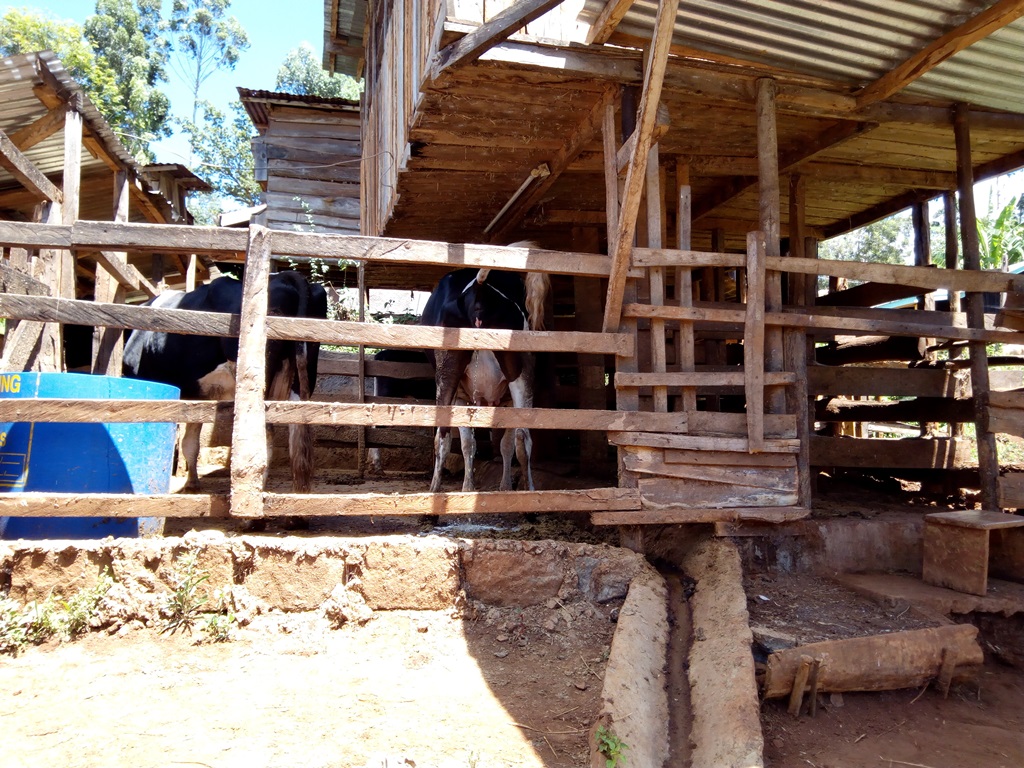Grace Nyambura Gachuki, a dairy farmer in Kiambu County, used to refill the Liquefied Petroleum Gas (LPG) tank every three weeks. This was in addition to using charcoal and firewood to take care of all the household’s fuel needs. She had seen biogas digesters on TV, but got a better idea when her neighbour installed one. She just could not believe the gas actually came from cow dung waste.
“In total, I have been saving approximately Ksh 4,100 (equivalent to 39 USD) a month – money that I formerly spent on LPG. With a two-burner stove, my kitchen is now clean because I no don’t burn firewood anymore. This gives me some free time to focus on other money-making activities like dairy farming,’’ she said.
Grace had her plant installed in 2015. To date, she has not faced any technical challenges, and whenever she is uncertain of anything, she consults her local Biogas Construction Enterprise (BCE) agent. She uses bio-slurry as a fertilizer directly in her kitchen garden, where she has planted spinach, kale, arrowroot and tomatoes. In the main farm, she uses it on Napier grass and maize. “I used to grow the same crops before, but with bio-slurry, they all grow much better, faster and are very green despite the drought,’’ she said.
“Other farmers come to see my digester and express interest in acquiring one. Some have already done so, whereas others are saving money to meet the upfront cost. When I was installing my plant, some farmers laughed at me saying that I was wasting my money on something that was never going to work. They are now envious of my digester.’’
Through stories of individuals such as Grace, the Africa Biogas Partnership Programme continies to power and transform lives through the use of biogas and bio-slurry to mitigate climate change. To date, over 17,500 bio-digesters have been installed in Kenya.




